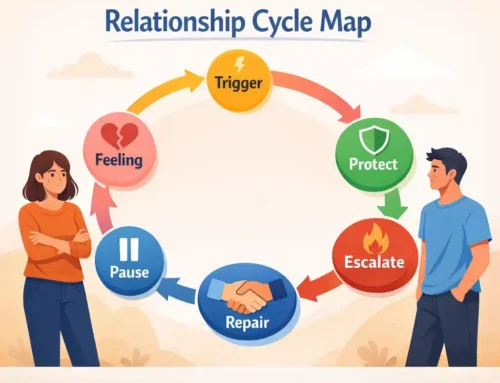
Approx. read time: 5.3 min.
Post: Understanding Baby Fever in 40-Year-Old Women: The Hormonal Influences
Understanding Baby Fever in 40-Year-Old Women: The Hormonal Influences
The Biological Clock and Baby Fever
The Concept of the Biological Clock
The term “biological clock” is frequently used to describe the innate sense of urgency many women feel as they age, particularly in relation to fertility and childbearing. By the age of 40, a woman’s reproductive years are significantly advanced, and this awareness can trigger a profound emotional response.
Fertility Decline
Women’s fertility declines with age, with a notable decrease in the number and quality of eggs. By the time a woman reaches 40, her chances of conceiving naturally are significantly lower than in her 20s or early 30s. This decline can create a sense of urgency, amplifying feelings of baby fever as women become more acutely aware of their narrowing window of opportunity for natural conception.
According to the American Society for Reproductive Medicine, women in their early 40s have a significantly lower chance of conception compared to younger women. This awareness of biological limitations can heighten the desire to have children.
Hormonal Influences
Estrogen and Progesterone
Estrogen and progesterone are two key hormones that regulate the menstrual cycle and reproductive health. As women approach their 40s, levels of these hormones begin to fluctuate and decline, a precursor to menopause. These hormonal changes can influence emotions and behaviors, potentially heightening the desire for a child.
Estrogen
Estrogen levels fluctuate during the menstrual cycle and decrease with age. Estrogen is linked to mood regulation, and lower levels can lead to emotional changes, including increased sensitivity and heightened emotional responses, such as the longing for a child.
Research published in the journal Menopause highlights the emotional impact of declining estrogen levels, noting an increase in emotional sensitivity and mood swings.
Progesterone
Progesterone, another critical hormone in the reproductive cycle, also declines with age. Lower levels of progesterone can affect mood and emotional stability, contributing to feelings of anxiety and longing often associated with baby fever.
Oxytocin
Oxytocin, often referred to as the “love hormone,” plays a significant role in social bonding and maternal behaviors. This hormone is released in large amounts during childbirth and breastfeeding, promoting bonding between mother and child. Increased levels of oxytocin can also be triggered by social interactions and emotional connections, potentially intensifying the desire to experience motherhood or expand one’s family.
Studies in Frontiers in Psychology indicate that oxytocin is crucial for maternal bonding and can enhance the desire for nurturing behaviors.
Prolactin
Prolactin, a hormone primarily associated with lactation, also influences maternal behaviors and feelings. Elevated levels of prolactin can enhance maternal instincts and the desire to nurture, which may contribute to the baby fever experienced by women in their 40s.
Psychological Factors
Life Reflections and Milestones
Reaching the age of 40 often prompts individuals to reflect on their life achievements and future goals. For many women, this period of reflection includes evaluating their family and reproductive goals. Those who have delayed childbearing due to career or personal reasons might experience a resurgence of baby fever as they reassess their priorities.
The psychological review Developmental Review discusses how midlife is a critical period for personal reassessment and life goal evaluation, which can include a renewed focus on family and reproduction.
Peer Influence and Social Norms
Social circles and societal expectations can also play a role in the emergence of baby fever. Women in their 40s may see friends and family members having children or becoming grandparents, which can evoke feelings of longing and desire for a similar experience. The social comparison and perceived societal norms can intensify the pressure to fulfill these maternal desires.
The Role of Modern Medicine
Assisted Reproductive Technologies
Advancements in assisted reproductive technologies (ART) have made it possible for women in their 40s to conceive and bear children. Treatments such as in vitro fertilization (IVF) and egg freezing offer hope to those experiencing baby fever, providing options that were not available to previous generations. The availability of these technologies can influence the desire to have children, as the possibility of conception remains viable longer.
The Centers for Disease Control and Prevention (CDC) provides comprehensive data on the success rates of ART, showing increased opportunities for older women to conceive.
Hormone Replacement Therapy
Hormone replacement therapy (HRT) is often used to alleviate symptoms of menopause, but it can also impact emotional well-being and potentially reduce the intensity of baby fever. By stabilizing hormone levels, HRT can help manage the emotional fluctuations associated with declining fertility, although it is not a cure for the deep-seated desire for motherhood.
Coping Strategies
Emotional Support and Counseling
For women experiencing intense baby fever, seeking emotional support through counseling or support groups can be beneficial. Sharing experiences and feelings with others who understand can provide comfort and reduce feelings of isolation.
Exploring Alternative Paths to Motherhood
For those unable to conceive naturally, exploring alternative paths to motherhood, such as adoption or fostering, can provide fulfillment and satisfy the longing to nurture and care for a child.
Baby fever in 40-year-old women is a complex interplay of hormonal changes, psychological factors, and societal influences. Understanding the scientific and emotional drivers behind this phenomenon can help women navigate their feelings and make informed decisions about their reproductive health and future. As medical advancements continue to evolve, the possibilities for motherhood extend beyond traditional timelines, offering hope and options for those experiencing baby fever later in life.
References
- American Society for Reproductive Medicine. (2020). Age and Fertility: A Guide for Patients. Retrieved from ASRM
- Rubinow, D. R., et al. (2016). Estrogen, Menopause, and Mood. Menopause Journal, 23(2), 215-223.
- Uvnäs-Moberg, K., et al. (2019). Role of Oxytocin in the Psychophysiology of Birth and Bonding. Frontiers in Psychology, 10, 2239.
- Lachman, M. E. (2004). Development in Midlife. Developmental Review, 24(4), 423-457.
- Centers for Disease Control and Prevention. (2021). Assisted Reproductive Technology (ART) Success Rates. Retrieved from CDC










